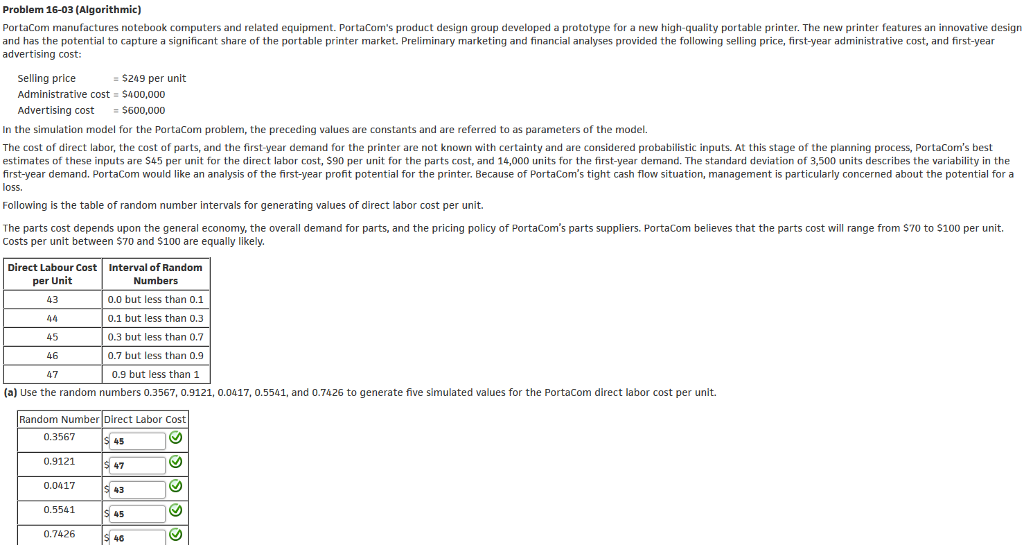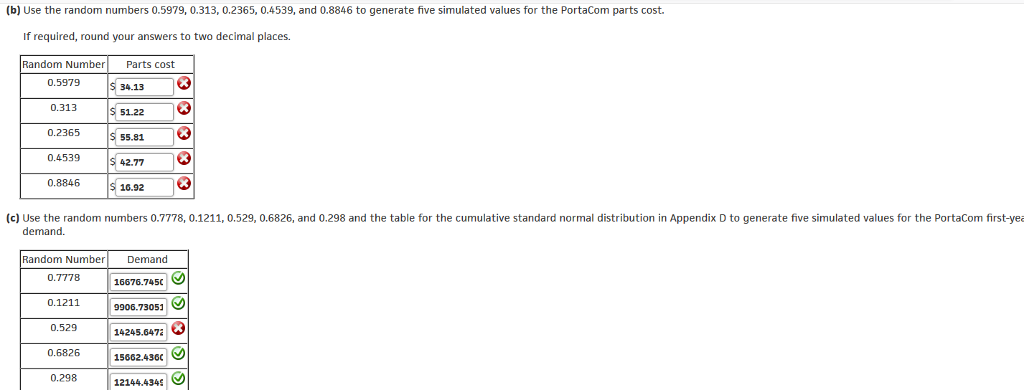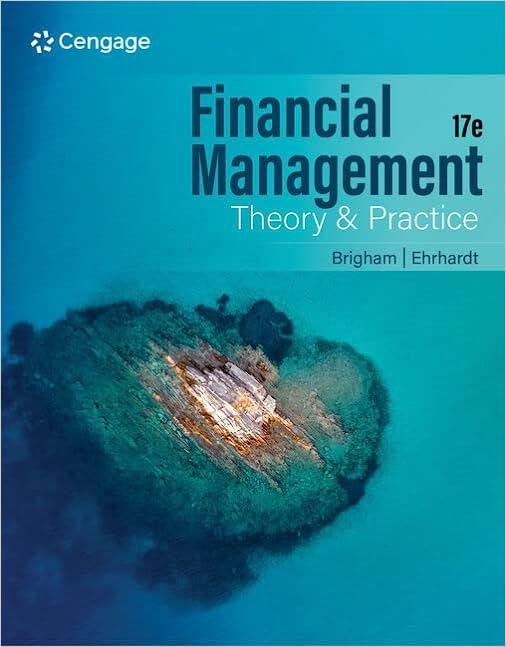Answered step by step
Verified Expert Solution
Question
1 Approved Answer
What is mainly needed is help figuring out how to type the formulas in Excel for each step of the problem. Problem 16-03 (Algorithmic) PortaCom


What is mainly needed is help figuring out how to type the formulas in Excel for each step of the problem.
Problem 16-03 (Algorithmic) PortaCom manufactures notebook computers and related equipment. PortaCom's product design group developed a prototype for a new high-quality portable printer. The new printer features an innovative design and has the potential to capture a significant share of the portable printer market. Preliminary marketing and financial analyses provided the following selling price, first-year administrative cost, and first-year advertising cost Selling price $249 per unit Administrative cost $400,000 Advertising cost $600,000 In the simulation model for the PortaCom problem, the preceding values are constants and are referred to as parameters of the model. The cost of direct labor, the cost of parts, and the first-year demand for the printer are not known with certainty and are considered probabilistic inputs. At this stage of the planning process, PortaCom's best estimates of these inputs are S45 per unit for the direct labor cost, $90 per unit for the parts cost, and 14,000 units for the first-year demand. The standard deviation of 3,500 units describes the variability in the first-year demand. PortaCom would like an analysis of the first-year profit potential for the printer. Because of PortaCom's tight cash flow situation, management is particularly concerned about the potential for a loss. Following is the table of random number intervals for generating values of direct labor cost per unit. The parts cost depends upon the general economy, the overall demand for parts, and the pricing policy of PortaCom's parts suppliers. PortaCom believes that the parts cost will range from $70 to S100 per unit. Costs per unit between $70 and $100 are equally likely Direct Labour Cost per Unit 43 Interval of Random Numbers 0.0 but less than 0.1 0.1 but less than 0,3 0.3 but less than 0.7 0.7 but less than 0.9 0.9 but less than1 45 46 47 (a) Use the random numbers 0.3567, 0.9121, 0.0417, 0.5541, and 0.7426 to generate five simulated values for the Portacom direct labor cost per unit. Random Number Direct Labor Cost 0.3567 45 0.9121 0.0417 0.5541 47 43 45 0.74264 (b) Use the random numbers 0.5979, 0.313, 0.2365, 0.4539, and 0.8846 to generate five simulated values for the PortaCom parts cost. If required, round your answers to two decimal places. Random Number Parts cost 0.5979 34.13 0.313 51.22 0.2365 55.81 0.4539 42.77 0.8846 16.92 (c) Use the random numbers 0.7778, 0.1211, 0.529, 0.6826, and 0.298 and the table for the cumulative standard normal distribution in Appendix D to generate five simulated values for the PortaCom first-yea demand. Random Number Demand 0.7778 16676.7450 0.1211 9906.73051 0.529 0.6826 0.298 14245.6472 15662.4360 12144434 Problem 16-03 (Algorithmic) PortaCom manufactures notebook computers and related equipment. PortaCom's product design group developed a prototype for a new high-quality portable printer. The new printer features an innovative design and has the potential to capture a significant share of the portable printer market. Preliminary marketing and financial analyses provided the following selling price, first-year administrative cost, and first-year advertising cost Selling price $249 per unit Administrative cost $400,000 Advertising cost $600,000 In the simulation model for the PortaCom problem, the preceding values are constants and are referred to as parameters of the model. The cost of direct labor, the cost of parts, and the first-year demand for the printer are not known with certainty and are considered probabilistic inputs. At this stage of the planning process, PortaCom's best estimates of these inputs are S45 per unit for the direct labor cost, $90 per unit for the parts cost, and 14,000 units for the first-year demand. The standard deviation of 3,500 units describes the variability in the first-year demand. PortaCom would like an analysis of the first-year profit potential for the printer. Because of PortaCom's tight cash flow situation, management is particularly concerned about the potential for a loss. Following is the table of random number intervals for generating values of direct labor cost per unit. The parts cost depends upon the general economy, the overall demand for parts, and the pricing policy of PortaCom's parts suppliers. PortaCom believes that the parts cost will range from $70 to S100 per unit. Costs per unit between $70 and $100 are equally likely Direct Labour Cost per Unit 43 Interval of Random Numbers 0.0 but less than 0.1 0.1 but less than 0,3 0.3 but less than 0.7 0.7 but less than 0.9 0.9 but less than1 45 46 47 (a) Use the random numbers 0.3567, 0.9121, 0.0417, 0.5541, and 0.7426 to generate five simulated values for the Portacom direct labor cost per unit. Random Number Direct Labor Cost 0.3567 45 0.9121 0.0417 0.5541 47 43 45 0.74264 (b) Use the random numbers 0.5979, 0.313, 0.2365, 0.4539, and 0.8846 to generate five simulated values for the PortaCom parts cost. If required, round your answers to two decimal places. Random Number Parts cost 0.5979 34.13 0.313 51.22 0.2365 55.81 0.4539 42.77 0.8846 16.92 (c) Use the random numbers 0.7778, 0.1211, 0.529, 0.6826, and 0.298 and the table for the cumulative standard normal distribution in Appendix D to generate five simulated values for the PortaCom first-yea demand. Random Number Demand 0.7778 16676.7450 0.1211 9906.73051 0.529 0.6826 0.298 14245.6472 15662.4360 12144434Step by Step Solution
There are 3 Steps involved in it
Step: 1

Get Instant Access to Expert-Tailored Solutions
See step-by-step solutions with expert insights and AI powered tools for academic success
Step: 2

Step: 3

Ace Your Homework with AI
Get the answers you need in no time with our AI-driven, step-by-step assistance
Get Started


